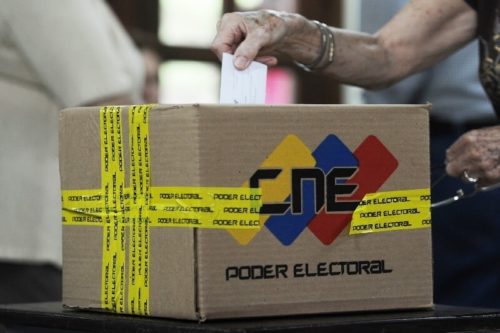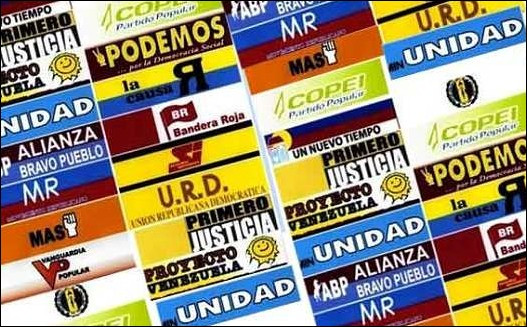Betzabeth Bracho is the coordinator for Fundacion La Papelera Tiene Hambre (“The Trash Can is Hungry” Foundation), an association whose goal is to educate people about waste and garbage management. For her, the second national blackout was not an impediment to the organization of Earth Hour in Maracaibo, a worldwide event that takes place on the last Saturday of March every year to raise awareness about the need to adopt measures to fight climate change.
Support from the Human Rights Network of Zulia and the French Alliance of Maracaibo made it possible for the people in the state of Zulia to have a moment of respite. Amid the lack of electricity and the difficult living conditions, these civil society organizations’ initiatives were key to bringing about a day for gathering and renewal on the subject of art and environmental conservation. This month’s Human Rights Defender of the Month shares her thoughts on her work and experience on this past March’s event.
Why do you consider yourself an activist for human rights?
I am an activist for human rights because we need people that are committed to making changes in society, where politicians and the government do not do anything. As a member of the civil society, I am committed to doing something and not waiting on the decisions of politicians, or for nothing to be done, when I can do it myself.
What do you do from your foundation?
From the Foundation, we empower state residents to correctly handle waste and garbage, since we have a severe waste problem and we do not even have a landfill.
The environment needs us to change our habits. It’s not about buying and buying all the time, it’s knowing to ask yourself after buying something, where is this going to end up? If you buy plastic, it needs to be sent to recycling days to decrease the amount of plastic that ends up in Lake Maracaibo.
We also promote the creation of urban forests. If each person planted a tree and made sure to care for it and water it, we might live better. It is no surprise that it is very hot in Maracaibo, if we had more trees, the thermal sensation might improve. People who walk on the street or ride bicycles could feel that difference.
Right now, with so many power plants running, it could help to decrease the amount of pollutant gas that these emit. Everyone should be responsible for planting one tree. Twenty trees per person are needed so we can breathe adequately in one day.
How many trees have you planted?
For now, I have planted eight trees, between my residence and the botanical garden. In front of my house, I have one I like very much, it’s a flamboyant tree, with orange flowers.
In the middle of the second national blackout, you organized Earth Hour in Maracaibo. How did you manage this operation in the middle of the chaos that the city was in, and why did you do it?
It was logical to think that the electricity service problem would not resolve itself overnight. I told all of our collaborators, artists, musicians, and teachers that the event would take place with or without power.
During the whole month, the blackouts were prolonged and continuous, for example, the power went out on Friday, March 29 and the event was scheduled for March 30. We decided we were going through with it anyway, and whoever could come to Plaza de la Republica, the event site, would come.
When, the Redhez (Human Rights Network of Zulia) organizations arrived, the people who set up the bazaar were already there. The event took place from 8 in the morning until 7 in the evening. We put all our effort into making it the best possible outcome and we were able to enjoy a normal day, despite the fact that we were in a completely abnormal situation.
There were yoga classes, riding bicycles, a discussion on sustainable cities, poetry-writing workshops, musical and theater presentations, and many other activities. We even had a soup station for anyone who came, even if they were not part of the event. It was a kind of bubble, in the middle of everything that was happening in the city.
What made this event different from past ones?
We normally promote events for over a month and we have a sound system for music acts. However, for me this year was better than ever. For the past four years, the event has been from 9 in the morning to 4 in the afternoon, but this year it went on for a much longer time.
The plaza was completely full of activities and everything was absolutely free. Photography exhibits, writing workshops for children, portrait drawings, among other things. It was truly incredible.
Do you like to incorporate art into these types of activities?
Art is the way to sensitize people. In my opinion, art generates emotions that make people feel more caring. When people see art, they can reach each other.
Was Earth Hour an opportunity to reach each other?
People forgot that we had no power in Maracaibo. People wanted to stay in the plaza, because it was a nice and dynamic space to meet. After the first blackout, people were devastated, discouraged, and had lost their will to live. On that day, they could meet up with their friends, and they saw that there are still people that want to do something for the city.
I believe that those of us who were there on that day have been able to cope better with the situation, because what is ideal is not resigning, it’s learning to live in order to survive and do things better each time. The goal is for us all to become better citizens, because that is what Venezuela needs: citizens who are more sensitive, better educated and aware of the impact they can make.



Photos: Iván Ocando/ María Alejandra Sanchez
The Commission for Human Rights of the State of Zulia (Codhez) is a human rights organization based in Maracaibo, Venezuela. They document, promote, and defend human rights in the state of Zulia.




